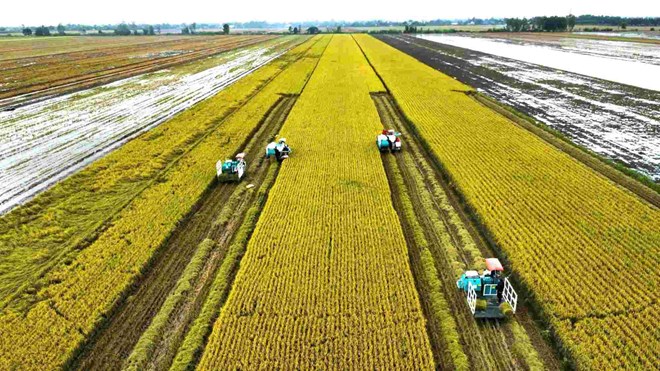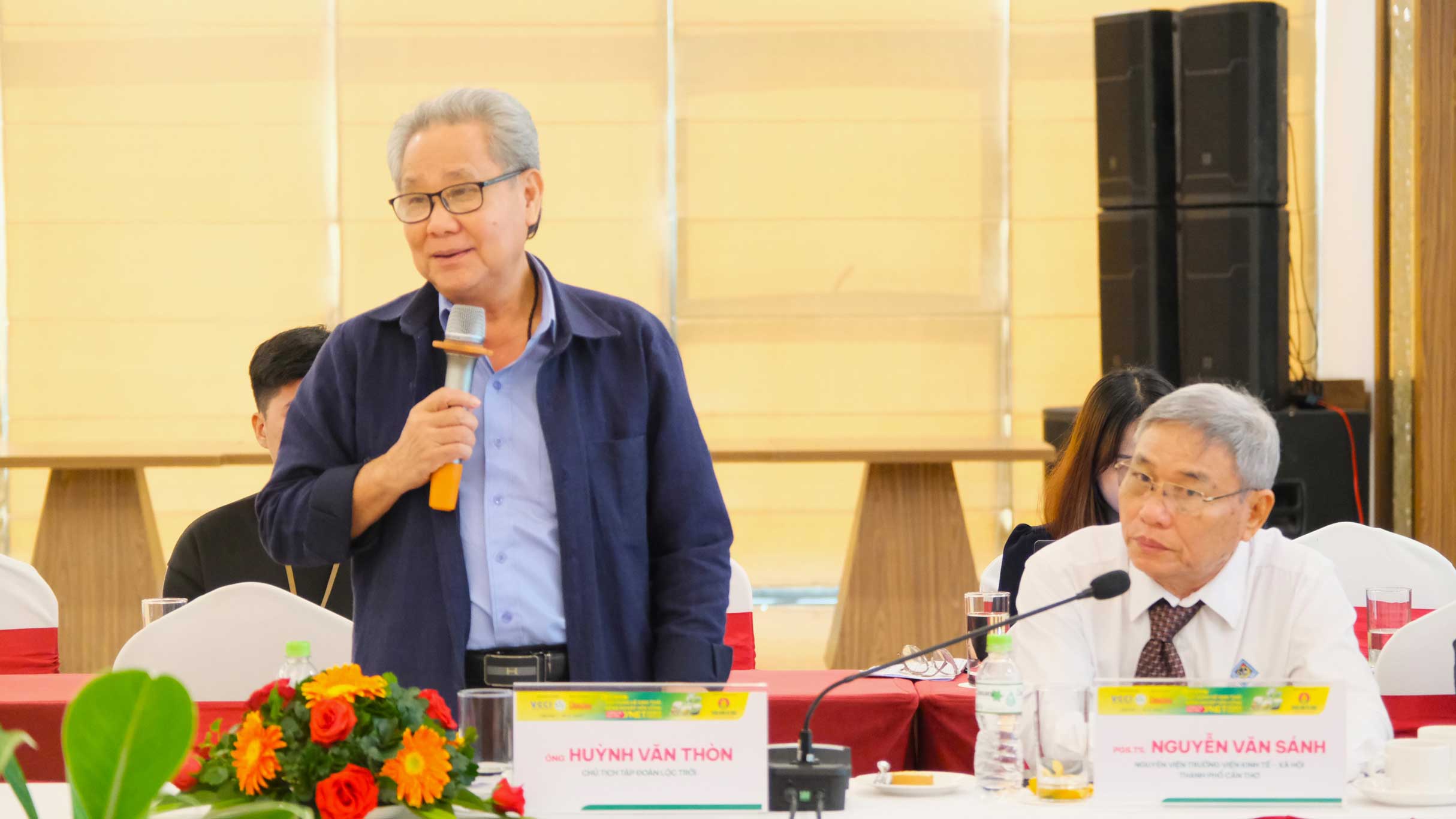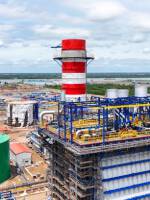
Need a “Commander-in-Chief”
This opinion was given by Mr. Vo Tan Thanh – Vice President of Vietnam Federation of Commerce and Industry – at the Forum on Building a Sustainable Agricultural Ecosystem towards the goal of Net Zero by 2050 recently held in Can Tho City.
According to Mr. Thanh, in the context of increasingly strict global standards, especially the requirement for “green – clean – low emission” agricultural production, Vietnam cannot stand aside. The Government has approved many important strategies and projects. A typical example is the Project to develop 1 million hectares of high-quality, low-emission rice in the Mekong Delta – an international model for low-carbon agriculture.
To achieve the Net Zero goal by 2050, Mr. Thanh said that it is impossible to rely on just one individual or organization. This is a joint effort of the government, businesses, the scientific community and farmers.
From a business perspective, Mr. Huynh Van Thon – Chairman of Loc Troi Group – shared that legal limitations, resources and many other conditions of large-scale fields can be resolved on a 1 million hectare field.
To successfully implement the project, Mr. Thon proposed that it is necessary to reasonably assign tasks, define the tasks, responsibilities, and powers of the participating parties, and most importantly, the role of local leaders. If local leaders play a leading role as a “commander-in-chief”, the sectors, departments, and enterprises can do their part, implement faster, and promote core competencies.

As a manufacturing unit with more than 10 years of experience in the export market, Mr. To Thai Thanh – General Director of Tien Thinh Group Joint Stock Company – believes that green and sustainable production not only creates safe products for consumers but also protects the health of producers.
Accordingly, on the state management side, Mr. Thanh proposed that there should be programs and activities to closely inspect, monitor, evaluate the effectiveness, feasibility and practical results achieved to ensure that farmers produce well, greenly and according to standards.
Fast and easy access to capital
According to Mr. Thanh, to modernize, automate or improve model transformation to bring value, capital and appropriate capital sources are needed. That is the motivation for participants to change.
Preferential loan policies not only help farmers and businesses access capital at low interest rates but also create conditions for investment in modern technology, improving product quality and expanding production scale. Long-term preferential credit programs, specifically for the agricultural processing industry, will help farmers and businesses reduce financial burdens as well as improve competitiveness in the market.
Mr. Thon also said that the issue of lending policy needs to be paid attention to. Participating in the project, along with reducing emissions and protecting the environment, farmers also benefit from reducing production costs. However, to implement the project’s procedures, farmers need capital. Along with suitable lending interest rates, quick and easy access will facilitate farmers when participating in the project.
Mỹ Ly




